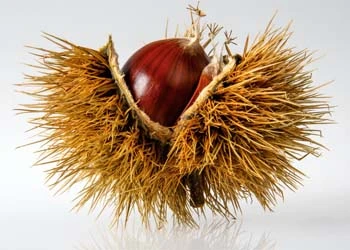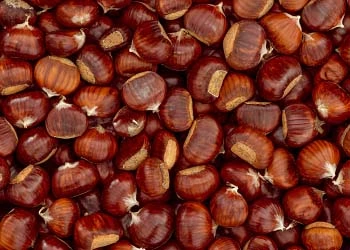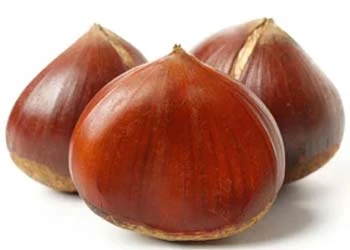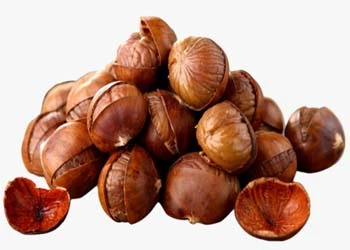+44 7478 549592
info@cannedsfood.com

Chestnuts
Chestnuts are the edible fruit of deciduous trees in the family Castanea, which grows in Europe, North America, and Asia. Along with hazelnuts, they are one of the only nuts that are actually fruits as opposed to seeds. (Except for peanuts, which are legumes.) Chestnuts grow in clusters of up to seven nuts inside inedible spiny husks. The nut inside is smooth, shiny, and dark brown in color, and the way the nuts are pressed together within the husk means that each one has a flat side and a rounded side.

Nutritional Value
100 grams of roasted Chestnuts contains 40 grams of water and provides 245 calories, 3 grams of protein, and 53 grams of carbs, along with 2 grams of fat and 5 grams of fiber. They also contain 26 mg of vitamin C and 0.5 mg of vitamin B6, which represent 29 percent and 28 percent of the U.S. daily value, respectively.

Health benefits of Chestnuts
chestnuts , unlike other nuts and seeds, are relatively low in calories and fats. Nonetheless, they are rich sources of minerals, vitamins, and phytonutrients that immensely benefit health. They are an excellent source of dietary fiber; provide 8.1 g (about 21% of RDI) per 100 g. Fiber diet helps lower blood cholesterol levels by limiting excess cholesterol absorption in the intestines.

Health benefits of Chestnuts
Chestnuts are rich in folates akin to green leafy vegetables, which is quite a rare but unique feature for nuts and seeds. 100 g nuts provide 62 µg of folates (or 15.5%). Folic acid is essential for the formation of red blood cells, and DNA synthesis. Adequate consumption of food rich in folates during the peri-conception period helps prevent neural tube defects in the newborn.
